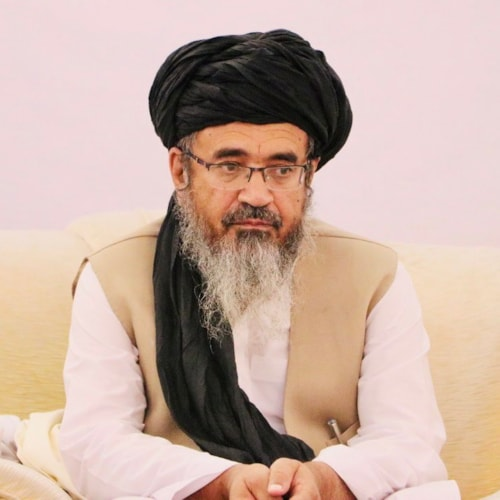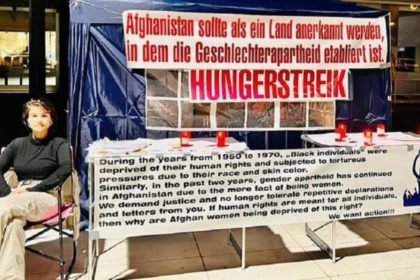RASC News Agency: In the wake of the public execution of two individuals in Badghis province, Abdul Hakim Haqqani, Chief Justice of the Taliban’s Supreme Court, has traveled to Qala-e-Naw, the provincial capital. This visit, which took place on Friday, April 11, followed the executions and was reportedly intended to evaluate the performance of Taliban courts and address persistent deficiencies within the group’s judicial apparatus in the region. During his trip, Haqqani held consultations with Taliban provincial authorities, emphasizing the necessity of strengthening collaboration between judicial bodies and local administrative structures. In a statement posted on his official X (formerly Twitter) account, Haqqani noted that the primary objective of his visit was to conduct a direct assessment of judicial proceedings, examine institutional challenges, and encourage provincial officials to increase their coordination with Taliban courts.
In separate meetings with Mohammad Amin Jan Omari, the Taliban-appointed governor of Badghis, and other senior officials, various issues were discussed, including the conduct of judicial affairs, legal procedures, and endemic structural problems within the region’s legal system. The executions, carried out in the presence of local officials and residents from three provinces, have provoked widespread condemnation from international human rights organizations. The individuals were executed on charges of murder, in what observers have described as a blatant violation of human rights standards. International watchdogs have characterized the executions as serious breaches of international law. In response, the Taliban judiciary has dismissed the criticism and urged foreign governments and organizations to refrain from intervening in what they describe as the group’s internal and religious affairs.
Abdul Hakim Haqqani, one of the most powerful figures within the Taliban and a founding member of the group, is currently facing mounting international scrutiny over extensive human rights abuses. The Chief Prosecutor of the International Criminal Court (ICC) has recently requested arrest warrants for both Haqqani and Taliban Supreme Leader Hibatullah Akhundzada on charges of crimes against humanity. The request stems from documented instances of systemic persecution and repression of women and girls under Taliban rule. Since the Taliban’s return to power in 2021, girls beyond the sixth grade have been denied access to education, and women have been stripped of numerous fundamental rights, including the right to work and participate in public life. These developments were prominently raised at the 2025 Antalya Diplomacy Forum, where Maryam Nawaz, Chief Minister of Punjab, Pakistan, expressed deep concern over the educational ban on Afghanistani girls and urged the international community to respond decisively to the worsening humanitarian crisis.
Despite mounting global criticism, the Taliban has consistently rejected all accusations, asserting that its policies and governance are grounded in Islamic Sharia law. The group has reiterated its refusal to allow any foreign involvement in Afghanistan’s domestic and religious affairs.






